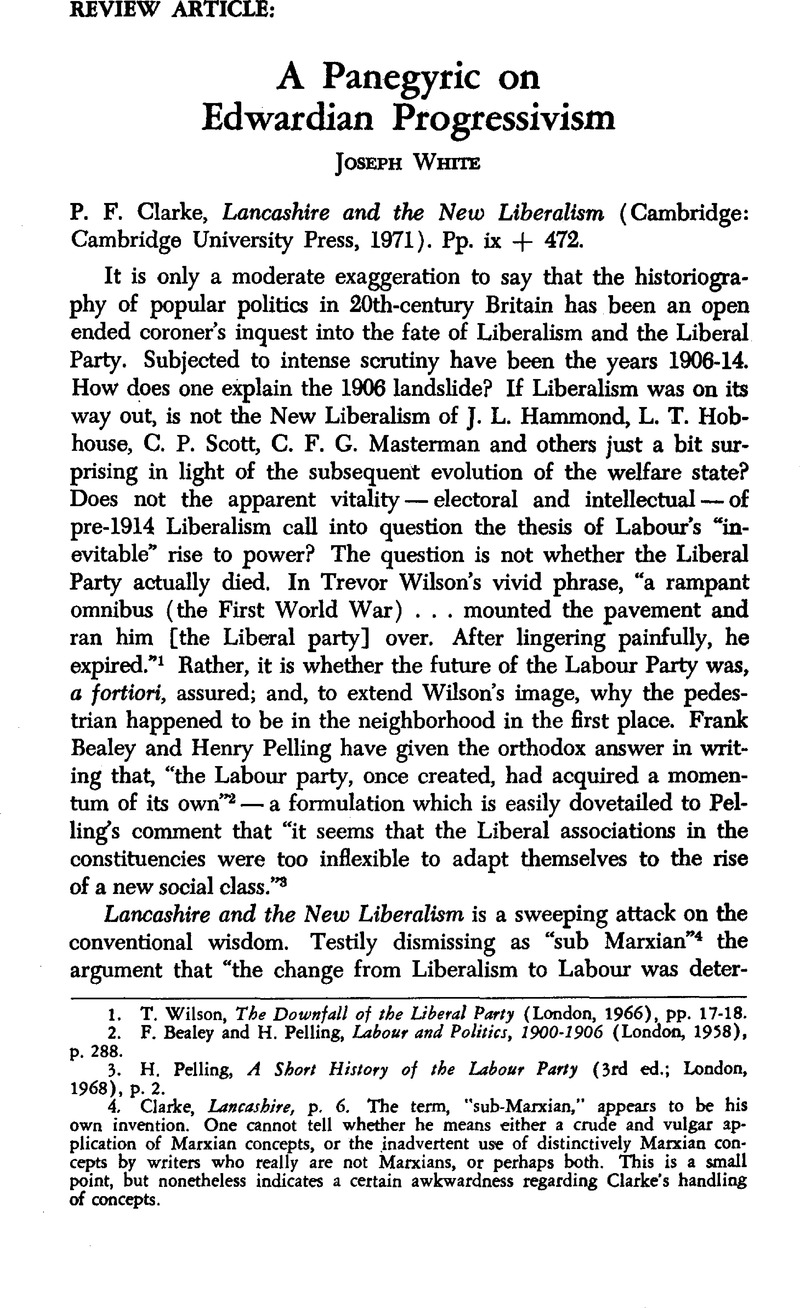Article contents
A Panegyric on Edwardian Progressivism
Review products
Published online by Cambridge University Press: 16 January 2014
Abstract

Information
- Type
- Review Article
- Information
- Copyright
- Copyright © North American Conference of British Studies 1977
References
1. Wilson, T., The Downfall of the Liberal Party (London, 1966), pp. 17–18Google Scholar.
2. Bealey, F. and Pelling, H., Labour and Politics, 1900-1906 (London, 1958), p. 288Google Scholar.
3. Pelling, H., A Short History of the Labour Party (3rd ed.; London, 1968), p. 2CrossRefGoogle Scholar.
4. Clarice, , Lancashire, p. 6Google Scholar. The term, “sub-Marxian,” appears to be his own invention. One cannot tell whether he means either a crude and vulgar application of Marxian concepts, or the inadvertent use of distinctively Marxian concepts by writers who really are not Marxians, or perhaps both. This is a small point, but nonetheless indicates a certain awkwardness regarding Clarke's handling of concepts.
5. For a different approach to the cotton workers, which emphasizes among other factors deteriorating working conditions and a decline in upward social mobility, see White, Joseph, “The Lancashire Cotton Textile Workers During the Labor Unrest of 1910-1914,” (Ph.D. thesis, University of California, Berkeley, 1975)Google Scholar.
6. Rubenstein, David, “Interview With Tom Stephenson,” Bulletin of the Society for the Study of Labour History, No. 22 (Spring, 1971), 27Google Scholar.
7. Nelson, Leader, Jan. 1910Google Scholaret seq., in particular 15 March 1912, 9 May 1913, 20 and 27 June 1913.
8. Manchester Guardian, 23 Dec. 1911.
9. Halévy, E., A History of the English People in the Nineteenth Century (New York, 1961), VI, 7Google Scholar.
10. Russell, B., The Autobiography of Bertrand Russell, 1914-1944 (New York, 1968), p. 5Google Scholar.
11. (Oxford, 1971). See in particular pp. 28-47 and his comment that “Scott and the other moderate Liberals, however, had no desire for ‘a bad time of it,’ [in the fall of 1914], and for them party loyalty took precedence over dissent.”
12. Harrison, R., “The War Emergency Workers' National Committee, 1914-1920,” in Briggs, A. and Saville, J. (eds.), Essays in Labour History, 1886-1923, (London, 1971), pp. 211–59CrossRefGoogle Scholar.
- 3
- Cited by

